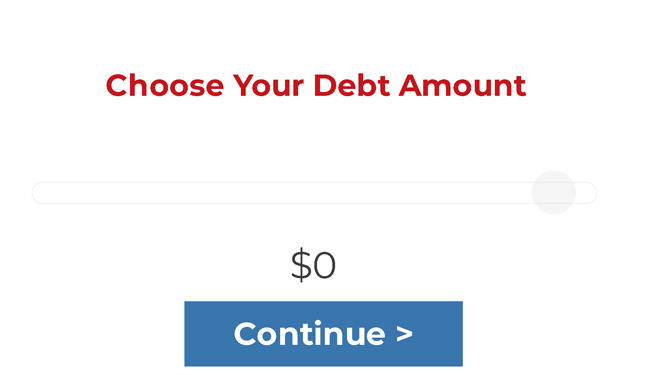If you’re struggling to keep track of your debt, consolidating it into one account can be a helpful way to manage multiple debts at once. This can be especially useful if you have credit cards, loans, and overdrafts from different places. Debt consolidation can make it easier to keep track of your payments and may help you save money on interest charges.
What is Debt Consolidation?
Debt consolidation can be a valuable tool to help manage your finances and reduce your monthly payments. By consolidating all of your debts into one loan, you can often get a lower interest rate and pay off your debt more quickly. However, it’s important to use debt consolidation wisely, or you could end up paying more in the long run.
Are you struggling to keep up with multiple debts? You are not alone. Fortunately, there are several ways you can consolidate your debts and get on track to becoming debt-free.
Pros and cons of consolidating credit card debt
There are a few things to consider before you decide whether debt consolidation is the best way for you to manage your credit card debt. Though there are some advantages, there are also some disadvantages that you should be aware of.

Pros
Easier to manage
Debt consolidation can be a significant advantage for anyone struggling to keep up with multiple monthly payments. One of the crucial pros of consolidating credit card debt is instead of remembering several different due dates, you can simplify your financial management by making a single payment each month. Furthermore, debt consolidation can help improve your credit score if you make timely monthly payments consistently.
Fewer monthly payments
Debt consolidation can save you money each month by simplifying your repayment process. Instead of making numerous payments to different creditors, you will only have to make one payment each month. This can reduce the monthly amount, freeing up money to help pay down the remaining balance. The amount you pay each month depends on the interest rate of your debt consolidation loan.
Lower interest costs
Debt can be costly, especially if you are paying high-interest rates. One of the pros of consolidating credit card debt is it can reduce the interest you’re spending on your existing debt. You can transfer your balance to a 0% interest credit card, or one with a low-interest rate. This will help you pay off your debt faster and avoid costly interest charges.
Cons
Expensive transfer fees
There are many things to consider when thinking of consolidating credit card debt. One crucial factor is the cost of fees you will pay to transfer your existing debt into one place. Make sure you understand all the expenses involved and calculate whether or not you will save money overall. Depending on your circumstances, any savings you make could be canceled out by these fees.
Repayment can take longer
If you have a lot of debt, it may take longer to pay it off if you only make the minimum payments. However, you can speed up the repayment process by paying more than the minimum monthly.
May cost more in total
Debt consolidation is not always the best option for reducing interest rates. You may pay more interest when consolidating credit card debt with a consolidation loan than you currently spend on your existing debt. This is especially true if you have low-interest-rate credit cards or loans.
Missing just one monthly payment on your debt consolidation loan can harm your credit score. This is why it’s essential to make all of your payments on time each month. Doing so can help improve your credit score over time.
Using a balance transfer to consolidate debt
If you have multiple debts with high-interest rates, a balance transfer could be a helpful way to consolidate those debts and reduce the amount of interest you pay overall. With a balance transfer, you can move debt from one credit card to another, usually choosing a card with a lower interest rate. This can save you money in the long run and help you get out of debt more quickly.
There are many credit cards with 0% interest rates that you can use to consolidate your debt. This can help you save monthly money by making it easier to pay off your debt. Simply transfer your outstanding balance to the new card and make payments towards reducing the debt. This will save you from having to make expensive interest payments each month.
If you have a strong credit history, you may be able to find some great 0% balance transfer deals. These offers usually come with a set period of interest-free time, so take advantage of them while you can.
If you have poor credit or need more time to pay off your debt, look for a balance transfer card with a low-interest rate. You will still have to pay interest on the card balance, but the lower rate can save you money in the long run. This can result in the total interest you pay decreasing significantly.
Balance transfer cards can be a great way to consolidate your debts and save on interest. However, you may be charged a balance transfer fee by your new card provider. This fee is typically a percentage of the outstanding balance amount and will be added to your overall debt. Keep this in mind when considering a balance transfer card as a debt consolidation option.
If you are looking to consolidate your credit card debt, a balance transfer can be an effective way to do so. By taking advantage of the 0% interest rate, you can pay off your credit card balance without accruing any interest. However, it is essential to know when the promotional period expires. Once it does, the interest rate will go up, and if you have not paid off your credit card by then, you will be charged interest on the outstanding balance.
Using a debt consolidation loan
Debt consolidation loans are a great way to reduce monthly expenses and get out of debt faster. By consolidating all your debts into one loan, you can make one low payment each month instead of several high payments to different creditors. This can save you money on interest charges and late fees, and help you get out of debt sooner.
There are two types of debt consolidation loans: secured and unsecured loans.
Secured loans
A secured loan is a type in which the borrower puts up collateral, such as a home or car, to secure the loan. If the borrower fails to repay the loan, the lender may repossess the collateral.
If you have a poor credit history, it may be easier to get approved for a debt consolidation loan if you choose a secured loan. With secured loans, lenders have less exposure to risk, so there is often a higher chance that your application will be accepted.
Unsecured loans
If you take out an unsecured loan, you don’t need to put up any collateral. This makes unsecured loans less risky for the borrower. In contrast, secured loans are considered higher risk because the borrower has to pledge an asset as collateral. Therefore, lenders typically offer lower interest rates on fast loans than unsecured loans.
When you consolidate your credit card debt with a loan, you can take control of your finances and budget more effectively. With a loan, you decide the term upfront (usually 1-5 years), so you have a clear repayment timeline and know precisely when the debt will be paid off. This can help you better manage your money and stay on track financially.
Consolidating credit card debt with a personal loan

There are many reasons why you might want to take out a personal loan. Perhaps you want to consolidate your debt, or you need to borrow a more significant sum of money than a credit card would allow. Whatever your reason, taking out a personal loan can be a convenient way to pay off existing debts and consolidate what you owe.
Personal loans can be a great way to consolidate debt, but it’s important to ensure that the loan you’re applying for can be used for that purpose. Some lenders restrict how personal loans can be used, so before you apply, check to see if consolidating your debt is an option.
There are many benefits to a personal loan, especially if you need to borrow a large sum of money. Personal loans typically have lower interest rates than credit cards, so you can save on interest payments by consolidating your debt with a personal loan. Additionally, a personal loan can help improve your credit score if you make your payments on time.
It is important to remember that the lowest interest rates are usually reserved for those with the best credit scores. Check your credit score before applying for a loan to ensure you get the best rate possible.
Alternatives to debt consolidation
Debt consolidation is not the only way to reduce credit card debt. You can also try alternatives that may work better for you before deciding on a particular approach. Some other options you might want to consider include the following:
Reduce debt with savings
With interest rates on savings at an all-time low, now is the time to focus on paying down your outstanding debt. By using your savings to pay off your debt, you can save money on interest and pay off your loan in less time. So if you have both savings and debt, put your money towards eliminating your debt and enjoy the financial freedom that comes with being debt-free.
Reduce your expenses
Building a comprehensive picture of your monthly expenses and income is key to creating a budget that you can stick to. Reviewing your bank statements line by line will help you identify areas where you may be overspending. Once you have a clear understanding of where your money is going, you can make changes to save yourself money. Any remaining money at the end of the month can be put towards paying down debt.
Remortgage your home
If you own a home, you may want to consider getting a new mortgage to pay off your credit cards or loans. With a new mortgage, you can get cash from the equity you have in your property and use it to pay off what you owe. Mortgage rates are very low right now, so if you have debt with high-interest rates on your credit cards, remortgage could be a good option for you.
Before deciding to remortgage your property, it is important to consider the value of your home as well as your credit score. There are also some fees associated with remortgaging, so be sure to factor these into your decision. Keep in mind that increasing the size of your mortgage will also increase your monthly repayments to the bank. Make sure you can comfortably afford the increased payments before proceeding with a remortgage.
Should you consolidate your debt?

If you’re struggling with credit card debt, consolidating your debts into one monthly payment can be a helpful way to get out of debt more quickly. Often, consolidating your debts costs less than continuing to borrow on credit. So if you’re paying high-interest rates on existing debt, consolidating your debts may help you save money in the long run.
When considering debt consolidation, it is crucial to weigh the potential pros and cons carefully. Make sure to view how much you would save after factoring in any associated charges. Also, be sure you can afford the required monthly repayments before moving forward with any consolidation option.
Remember that the interest rate and terms of any borrowing option will be based on your financial circumstances. This is important to keep in mind when considering taking out a loan.






